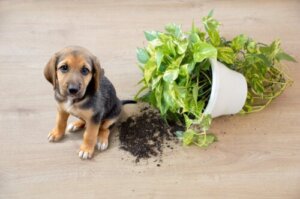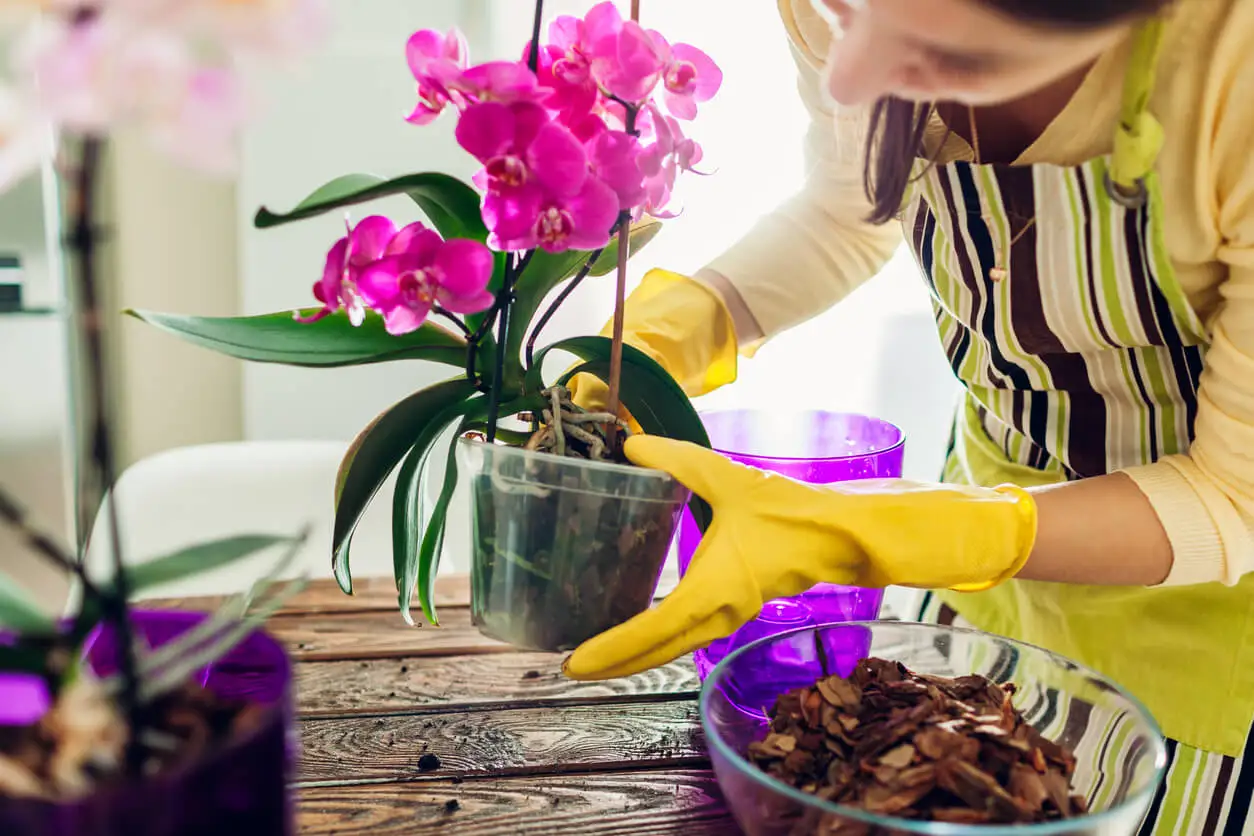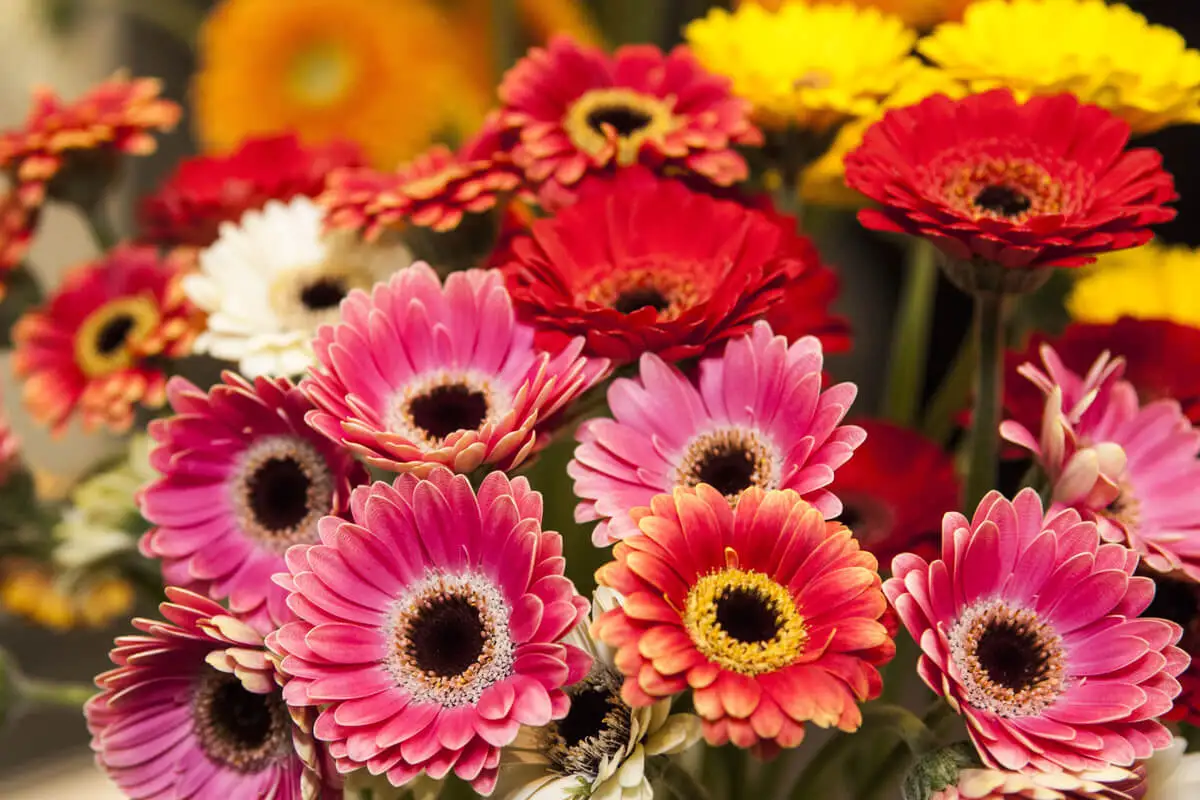11 Houseplants that Are Safe for Your Pets

If you have pets, it’s important to know which houseplants are safe for your pets. Both cats and dogs are quite curious, especially when they’re puppies and kittens.
It’s common for them to nibble leaves and even eat them. In the case of plants that are harmful to the animals’ health, this type of playing could be deadly in some cases. We’d like to invite you to take a look at a list of plants that you can have at home that aren’t poisonous to pets.
1. Orchids (Phalaenopsis varieties)
For lovers of these plants, here’s excellent news: orchids are one of the most popular species to have at home. This is because orchids offer a wide variety of colors, and their flowering occurs for a long time.
There’s no evidence that this plant can be poisonous, so you can keep them near your pets without risk to them. However, we suggest you place them in inaccessible places, because they could easily damage them when they want to play.

We think you may also enjoy reading this article: How to Remove White Mold in The Soil From Plants
2. Yellow palm (Areca)
This is a tropical plant and will need plenty of light and moist soil to thrive. Yellow palms are ideal to place in a corner and don’t generate any risk for your pets.
Among its benefits ,we can mention that these plants work as a remarkable air purifier, in addition to providing an exotic style to your interior spaces. Keep in mind when deciding where to place your areca that it can reach a meter and a half high.
3. Houseplants that are safe for your pets: Spider plant
This species seems to be the almost perfect plant to decorate your house or apartment. It is not harmful to pets, very easy to care for, hardy and very elegant. It is commonly planted in a pot elevated off the ground because when its leaves grow, they drop downward and give a very attractive visual effect.
4. Ferns
Speaking of plants that can be placed high up, a fern is ideal for hanging. It’s a purifying and safe plant for our four-legged friends, as long as you opt for the pteridophyte variety.
On the other hand, ferns don’t require too much care. They only need a space with good natural light (but not directly) and frequent watering with little water. Finally, the fern regulates environmental humidity levels.
5. Pilea peperomioides
This is a species of decorative houseplant that you can’t miss in your home. It’s also called Swedish ivy.
It doesn’t need much watering and prefers sites with lots of indirect light. It’s not dangerous for pets, so you can enjoy its beautiful green, rounded leaves that will beautify your spaces all year round.
6. Cacti and succulents
These are the favorite plants for those who aren’t very fond of gardening. They don’t need special care, adapt to any space, and aren’t harmful to pets’ health.
Some cacti can develop very large spines, so you could disregard these varieties and stick with the ones with small spikes for safety.
We think you may be interested in reading this, too: How to Use Neem Oil to Look After Your Garden Plants
7. Houseplants that are safe for your pets: Banana
This is a popular choice among houseplants that are safe for pets. It grows quite large, so you will need to have a good corner to place it.
It has large, green, showy leaves. As a tropical plant, it will need sunlight and lots of water. Just be patient because it takes about 3 years to develop.
8. Calathea
Calathea is a plant with great ornamental value. Its rounded leaves have a unique combination of green and white. It poses no threat to household dogs and cats.
9. Elephant’s foot
When grown in a pot, elephant’s foot can reach five feet tall. It’s a tropical plant that’s harmless to pets.
Contrary to other tropical species, it doesn’t do well with direct light and excess water.
10. Gerbera daisies
These are plants that bring a great splash of color to the environment and are completely harmless to pets. They bloom for up to about 6 weeks.

11. Houseplants that are safe for your pets: String of hearts
This pretty plant grows as a vine, and its heart-shaped leaves intertwine with each other and then fall to the ground. This means that you could hang it to decorate any corner of your house.
It adapts to all kinds of environments and doesn’t require much water, so we know it will become one of your favorites!
Houseplants that are safe for your pets bring harmony to the home
We hope you can grow some of these 12 varieties of plants that are very decorative and won’t be dangerous for your pets. However, always be careful to consult with specialists about the toxicity of a species before bringing a new one into your home.
Well-known plants such as ficus lyrata, peace lilies or potos can cause digestive problems in dogs and cats if their leaves are ingested. This is why you have to be attentive to what happens between your pets and your plants.
All cited sources were thoroughly reviewed by our team to ensure their quality, reliability, currency, and validity. The bibliography of this article was considered reliable and of academic or scientific accuracy.
- Zeinsteger, P. A., & Gurni, A. A. (2004). Plantas tóxicas que afectan el aparato digestivo de caninos y felinos. Revista Veterinaria, 15(1), 35-44.
- Sánchez Araya, P. (2015). Plantas tóxicas para perros y gatos en Costa Rica.
- Uhlig, M. (2008). Cactus y otras suculentas. Editorial HISPANO EUROPEA.
- Cambi, V. N., & Pérez Cuadra, V. (2010). Conozcamos las plantas: Galería fotográfica de ornamentales presentes en los jardines de infantes del partido de Bahía Blanca (Arg.).
- Rivas-Morales, C., Oranday-Cárdenas, M. A., & Verde-Star, M. J. (2016). Investigación en plantas de importancia médica. OmniaScience.
- González, G. J. D. (2010). Plantas tóxicas de importancia en salud y producción animal en Colombia. Universidad Nacional de Colombia.
This text is provided for informational purposes only and does not replace consultation with a professional. If in doubt, consult your specialist.








